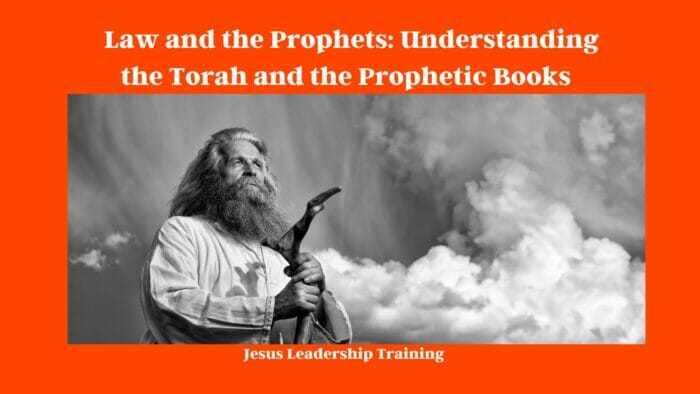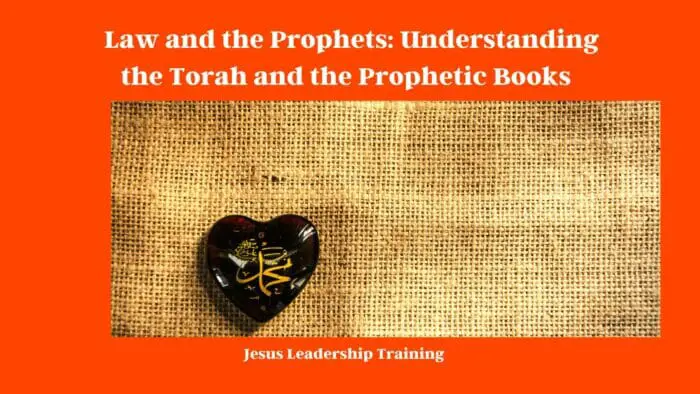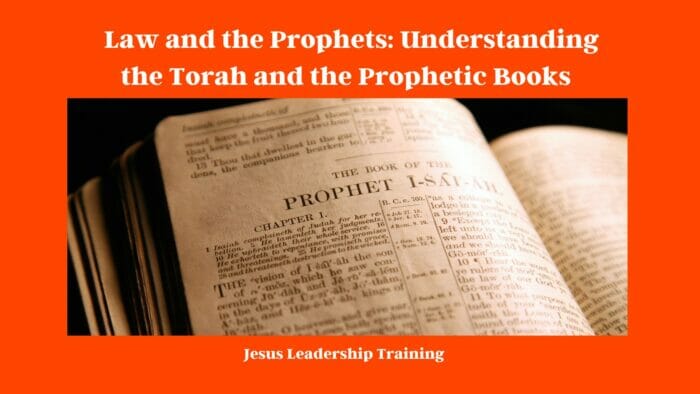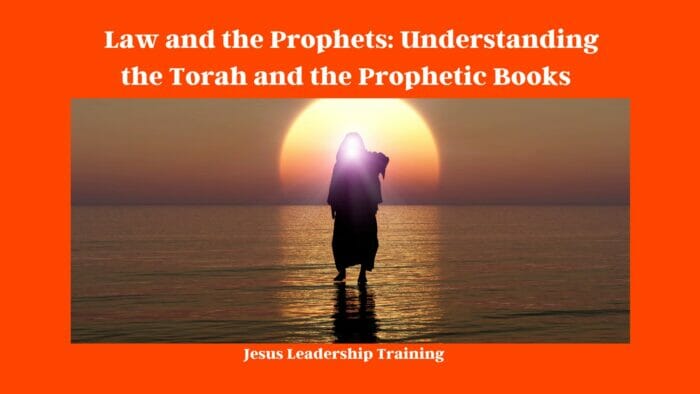The Law and the Prophets: Understanding the Torah and the Prophetic Books holds immense importance in Jewish religious traditions and serves as the foundation for their faith. In this article, we will delve into the significance of the Torah and the Prophetic Books, exploring their historical context, key themes, and impact on Jewish religious practices. Join us on this insightful journey to gain a deeper understanding of these sacred texts and their timeless wisdom.
Table of Contents
The Law and the Prophets: Understanding the Torah and the Prophetic Books
The Torah, often referred to as the Pentateuch, is the central religious text of Judaism. It comprises the first five books of the Hebrew Bible: Genesis, Exodus, Leviticus, Numbers, and Deuteronomy. The Prophetic Books, on the other hand, consist of prophetic writings from various prophets who conveyed divine messages to the Israelites.
The Torah: Divine Revelation and Historical Narratives
The Law and the Prophets: Understanding the Torah and the Prophetic Books begins with the Torah, which is believed to be divinely revealed to Moses on Mount Sinai. It encompasses narratives that trace the origins of humanity, the Israelites’ journey from slavery in Egypt to the Promised Land, and the establishment of various laws and rituals.
The Torah provides guidance on moral and ethical conduct, outlining commandments and principles that shape Jewish life. Its teachings promote justice, compassion, and reverence for God. Within the Torah, the Ten Commandments occupy a central position, serving as a moral compass for believers.

The Prophetic Books: Divine Messages and Social Commentary
The Prophetic Books, comprising the Nevi’im, encompass writings from prominent figures such as Isaiah, Jeremiah, Ezekiel, and others. These prophets acted as intermediaries between God and the people, conveying divine messages, warnings, and prophecies.
- Isaiah: The Promised MessiahIsaiah’s prophecies emphasize the future coming of a Messianic figure who would bring peace, justice, and salvation to the world. His powerful words inspire hope and demonstrate God’s eternal covenant with His people.
- Jeremiah: The Call for RepentanceJeremiah’s prophetic messages focused on the need for repentance and returning to God’s ways. He warned of the consequences of straying from the path of righteousness and called for social justice and compassion.
- Ezekiel: Visionary RevelationsEzekiel’s prophecies are filled with vivid imagery and symbolic visions. His messages revolve around the importance of individual responsibility, repentance, and the restoration of the Temple.

FAQs (Frequently Asked Questions)
Q: What is the significance of the Torah and the Prophetic Books in Judaism?
The Torah and the Prophetic Books are central to Judaism, providing guidance, moral teachings, and historical narratives that shape Jewish identity and religious practices.
Q: How do the Torah and the Prophetic Books influence Jewish law?
The Torah serves as the foundation for Jewish law, outlining commandments and principles that govern personal conduct, ritual practices, and societal interactions. The Prophetic Books often provide social commentary and reinforce the importance of justice and ethical behavior.
Q: Are the Torah and the Prophetic Books relevant in modern times?
Yes, the Torah and the Prophetic Books continue to be highly relevant in modern Jewish life. They offer timeless wisdom, ethical guidance, and inspire believers to lead virtuous lives.
Q: How do the Torah and the Prophetic Books contribute to interfaith dialogue?
The Torah and the Prophetic Books provide valuable insights into Jewish beliefs and values, fostering understanding and dialogue between different faith traditions.
Q: Can the Torah and the Prophetic Books be studied by non-Jews?
Absolutely! The wisdom contained within the Torah and the Prophetic Books transcends religious boundaries and can be studied by individuals seeking knowledge and spiritual enlightenment.
Q: How can one apply the teachings of the Torah and the Prophetic Books in daily life?
The teachings of the Torah and the Prophetic Books encourage believers to cultivate compassion, practice justice, and live a life of righteousness. By embodying these values, individuals can positively impact their communities and strive for a better world.

Conclusion
The Law and the Prophets: Understanding the Torah and the Prophetic Books illuminates the profound significance of these sacred texts in Jewish religious traditions. The Torah provides a divine blueprint for moral and ethical conduct, while the Prophetic Books offer visionary revelations and social commentary. Together, they shape Jewish religious practices, inspire believers, and offer timeless wisdom for all who seek to explore the depths of spiritual understanding.




